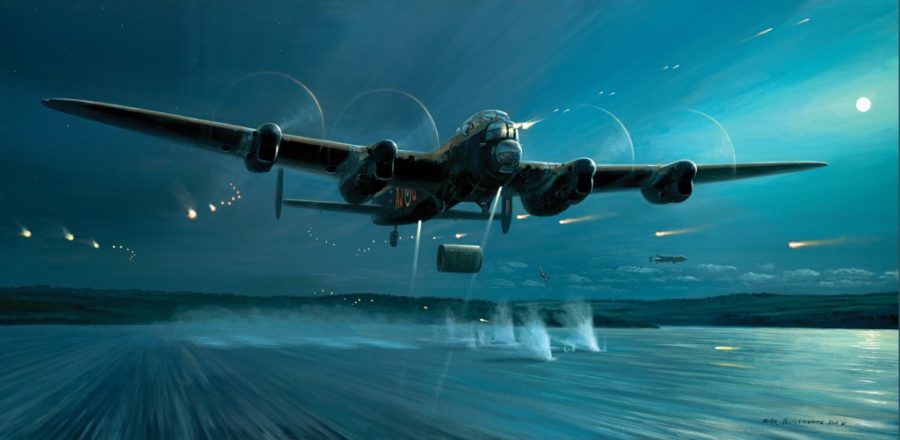17th May 2018 Canberra, Australia
Australian courage remembered on 75th anniversary of Dambusters raid

This is a year of commemoration. We have just witnessed the poignant 100th anniversary of the battle of Villers-Bretonneux and the centenary of the Royal Air Force. On November 11 we will mark a century since the armistice ended World War I.
And today marks the 75th anniversary of one of the most famous missions in military history: the Dambusters raid. Within the numerous accounts of this stunning mission, history seldom relates the central role of Australian aircrews.
Even less well known is their spectacular demonstration of collective courage; every one of the 13 young Australians who climbed into their Lancaster bombers on that night in 1943 would be awarded at least one medal for courage.
During the evening of May 16, 1943, they and 120 other aircrew took off from Scampton airfield to launch an audacious bombing raid, intended to cripple the Nazi war machine. Their mission was to breach five dams in the Ruhr valley. Each of the 19 Lancaster bombers was armed with an innovative so-called bouncing bomb, a skilled aircrew and an immeasurable reserve of courage. On that misty night, their success and sacrifice would carve a new chapter into the chronicles of air warfare; the Dambusters’ legend would be born.
History may challenge the strategic impact of the raid but no one has called into question the courage of the youthful crews who risked their lives to fight Nazi Germany. The Dambusters crews were hand-picked for their audacity and talent; a baker’s dozen of Australians made the cut.
Robert Barlow from St Kilda and Charles Williams from Torrens Creek in Queensland would die that night. Tony Burcher would spend the war in a German prison camp. Fred Spafford, Robert Hay and Les Knight would be killed later in the war. Only eight Australians would return home.
Australian airmen were at the centre of the raid’s success. Micky Martin, an expert in low flying, was picked by Guy Gibson — the raid’s leader — to train the squadron’s crews. Hay was selected to instruct the bomb-aimers and Knight’s bomb breached the Eder dam.
But all the Australian airmen were heroes. In a testament to Australian courage, every one of those 13 would be recognised for gallantry. Every one of them would pass to their families medals for valour, marking them out as the bravest of the brave. Between them, the Australian airmen who flew from Scampton that night would amass five Distinguished Service Orders, 15 Distinguished Flying Crosses, five Distinguished Flying Medals and a host of other awards. Jack Leggo and Martin would be knighted.
Even when set against the backdrop of this mission, each of those awards represents a singular story of courage, way above the expected norms of a combat aircrew. This catalogue of valour is a remarkable accolade to a very special band of Australian brothers.
In Iraq and Afghanistan I have fought shoulder to shoulder with Australian troops. Time and time again I have seen the legacy of courage epitomised by those Dambusters crews reflected in contemporary combat.
Today, 75 years after the dams were breached, Australian and British troops still stand side-by-side to face down those who would destroy all we hold dear.
On this anniversary, Britain will commemorate the skill and remarkable courage of 133 airmen and the legend they forged. We will bow our heads and think of the 53 young men who died in the air that night and the innocent civilians who bore the cost of war.
On this side of the world we should remember the 13 Australian Dambusters with particular pride. Lest we forget.
Brigadier Andy Harrison is British defence adviser to Australia.

The bravest of the brave should always be remembered as long as the action was justifiable. “Lest we forget”,I love that conclusion.